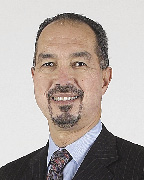The commercial real estate lending market has experienced its ups and downs over the past few turbulent years, but what remains constant is a desire on the part of both businesses and community banks to maintain solid, trustworthy relationships during these turbulent times.
In particular, small and mid-sized businesses recognize the importance of having strong associations with their commercial lenders. That personal component is likely to increase in importance as many large banks focus on improving their balance sheets and income statements, resulting in a potentially selective lending environment.
In tough times, some large banks have historically had a tendency to reduce or not renew their commercial clients' lines of credit, increase rates and/or include stringent benchmarks, and force borrowers to find another loan source. Many businesses react by turning to smaller lending institutions, namely community banks. The attraction for businesses - no matter the size - is a desire to work with a lender that makes an effort to eliminate road blocks and employs a common sense approach to lending practices. Certainly banking is and always will be a commodity business, but it is the magnitude of service that sets one lending institution apart from the other.
While most banks offer customized financing to meet specific business needs, long-term financing to cover equipment purchases and operation expansion and flexible lines of credit, businesses need to consider the significance of a bank's "reputation." In other words, will that bank work with the business when the chips are down or cast it aside in favor of their own profits.
The most sought after commercial lenders recognize that the size of a loan is secondary to the way it is serviced...and that building strong relationships with clients is a priority. In addition to consistent service, commercial customers want a lender who is available to provide advice and re-assurance, particularly during tough times.
The reality is that the largest hurdle facing the commercial lending industry and its customers is unemployment. While job creation has started to slowly rebound, the Southeastern corner of Massachusetts unfortunately retains a high unemployment status, with construction projects remaining slow. That said however, cautious optimism is being expressed by some regional business leaders.
In fact, a recent survey of business leaders in Southeastern Massachusetts conducted by the Center for Policy Analysis at the University of Massachusetts - Dartmouth indicates that while the region has experienced the worst economic downturn since the Great Depression, modest signs of growth are on the horizon, with some companies expected to add jobs over the course of the next year.
Regardless of whether economic times are good, bad or somewhere in the middle, it all comes down to a single truth - businesses want to work with an institution they can trust and rely upon. Community banks embrace these basic yet critically important fundamentals.
Carl Taber is the executive vice president, chief lending officer at Citizens-Union Bank, Fall River, Mass.
Tags:
Tabor discusses fundamentals of commercial lending: Building relationships through customer service
June 09, 2011 - Spotlights








